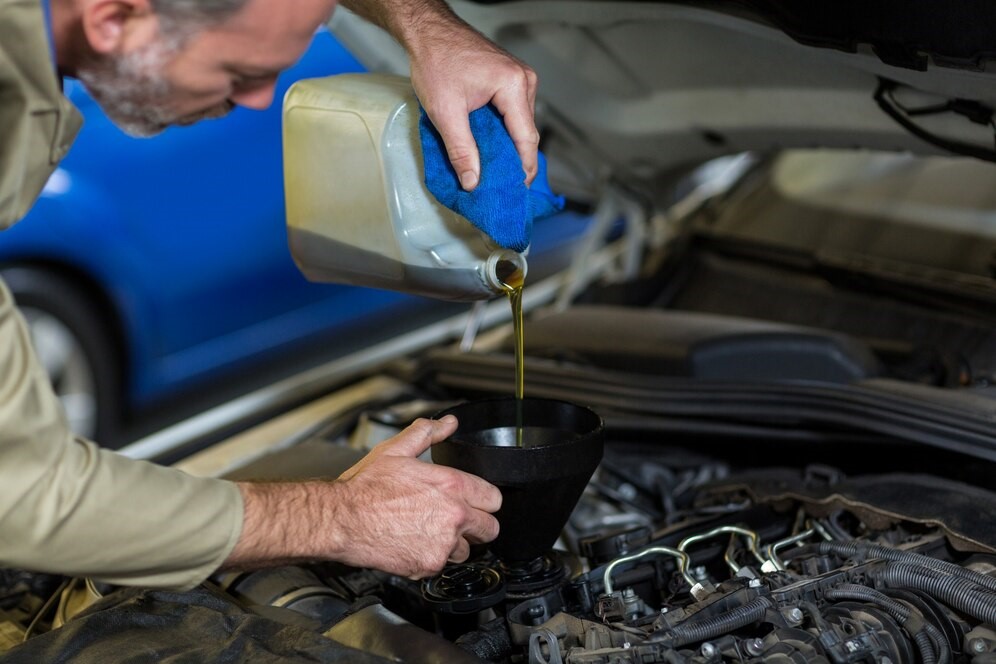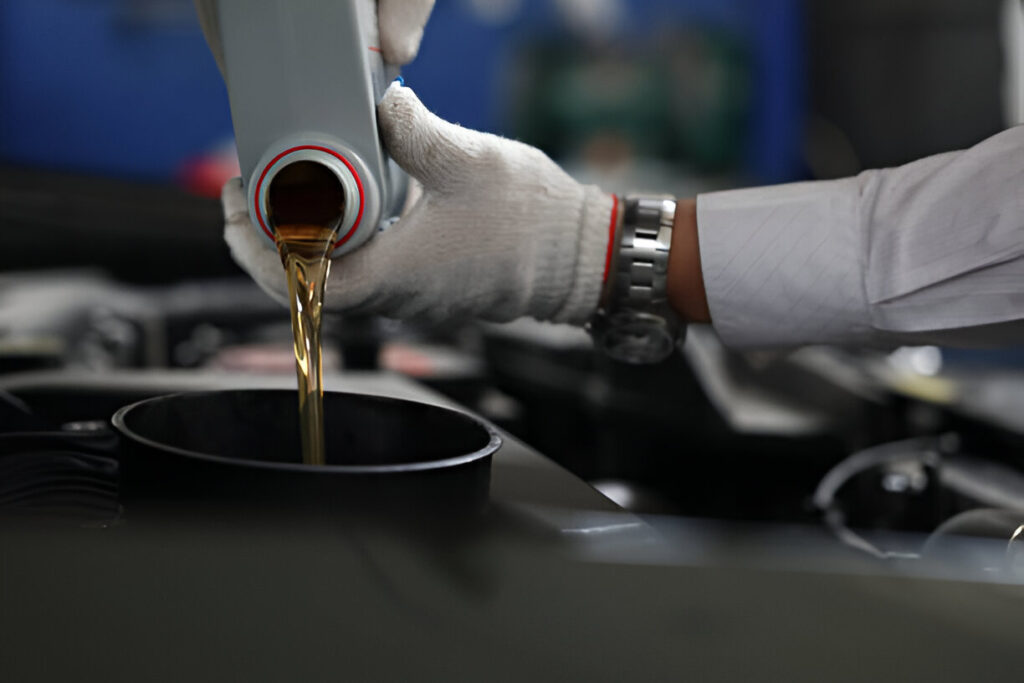
In the ever-evolving landscape of automotive technology, the significance of maintaining engine components to ensure longevity and performance cannot be overstated. One of the pivotal aspects of this maintenance is fuel injection cleaning. This process plays a crucial role in preserving your engine’s health, optimizing fuel efficiency, and enhancing vehicle performance. As we delve deeper into the intricacies of this essential practice, let us explore why it is indispensable for automotive enthusiasts and everyday drivers alike.
Introduction: The Automotive Industry’s Lifeline
The advent of fuel injection systems marked a groundbreaking leap in automotive engineering, replacing traditional carburetors. The U.S. made a full transition towards fuel injection technology around the late 1980s and early 1990s. Fuel injectors became the lifeline of modern engines, providing precision fuel delivery, better fuel economy, and reduced emissions – aligning with the growing emphasis on environmental sustainability and efficient performance.
Common Causes of Fuel Injector Clogging
Fuel injectors cleaning are integral parts of a car’s engine, regulating the amount of fuel that gets into the engine. Clogging in the fuel injectors can have serious impacts on the performance and efficiency of your vehicle. Various factors can lead to such clogging. Here are some common causes of fuel injector clogs and ways to prevent them.
A. Impurities in Fuel
- One of the most prevalent reasons for fuel injector clogging is the accumulation of impurities present in the fuel. These impurities form deposits over time, leading to inconsistent fuel supply.
- This problem is generally severe in cases where low-quality fuel is used. Compact sedans and SUVs using cheaper, lower-quality fuel showed a 32% higher incidence of fuel injector clogs, according to a 2018 study.
B. Dirt and Debris
- Dirt and debris, due to poor maintenance or exposure to unpaved or dirty roads, can get into the fuel tank. This dirt then passes into the fuel injectors, causing them to clog up and deteriorate the performance of the vehicle.
C. Deficiencies in Maintenance
- Skipping regular maintenance schedules can lead to the accumulation of rust in the fuel tank. This rust can eventually find its way to the fuel injectors, leading to clogging.
D. Additives and Ethanol
- Some fuel types contain additives and ethanol, which can lead to the formation of deposits on injectors over time.
- A study in 2019 showed that vehicles using fuel with ethanol blend showed a 14% higher incidence of injector clogging.
Relevant Statistics
Check out the following table to understand the frequency and causes of fuel injector clogging across various vehicles:
| Vehicle Type | Cause of Clogging | Percentage (%) |
| Compact Sedan/SUVs | Low-Quality Fuel | 32% |
| All Vehicle Types | Dirt and Debris | 23% |
| All Vehicle Types | Deficient Maintenance | 28% |
| Various Vehicle Types | Fuel with Ethanol Blend | 14% |
Fuel injectors work tirelessly, susceptible to various contaminants. Primary culprits include poor fuel quality, carbon buildup, and impurities in the fuel system. Ethanol-blended fuels can exacerbate this issue, leading to clogged nozzles and sticky internal components, resulting in poor fuel-air atomization.
Benefits of Fuel Injection Cleaning
Fuel injection cleaning is an important aspect of vehicle maintenance that many drivers tend to overlook. However, investing the time and resources into regular cleaning of your fuel injectors can considerably prolong the lifespan of your vehicle, improve its performance and reduce your environmental footprint. Here, we examine some of the major benefits it offers: </ p>
- Improved Fuel Efficiency: A clean fuel injector facilitates a more efficient burn by ensuring that the correct amount of fuel and oxygen mix. This helps to boost the vehicle’s fuel economy, effectively saving you money in the long run. A clean fuel injector can increase fuel efficiency by up to 4%.
- Enhanced Vehicle Performance: Over time, dirt and deposits can clog your vehicle’s fuel injectors which can negatively impact its operation. Regular cleaning can effectively eliminate these impediments and significantly enhance engine performance.
- Reduced Emission Levels: By facilitating a more complete burn of the fuel-air mixture, clean fuel injectors can help to reduce your vehicle’s emission levels. This is crucial for passing emissions testing and for reducing your carbon footprint.
- Longer Engine Life: Clean fuel injectors also mean less wear and tear on your engine. This is because they prevent particles from wearing out the components of the engine, thereby helping to extend its life.
These benefits clearly indicate that regular fuel injection cleaning is a worthwhile investment for all vehicle owners. Now, let’s examine how these benefits translate into stats with an illustrative table:
| Aspect | With Regular Cleaning | Without Regular Cleaning |
| Fuel Efficiency | Up by 4% | No change or decrease |
| Vehicle Performance | Significantly Improved | Potential Decline |
| Emission Levels | Reduced | Increased |
| Engine Life | Extended | Shortened |
In conclusion, fuel injection cleaning should be a key part of your vehicle’s routine maintenance procedures. While it may seem like an inconvenience or an unnecessary expense in the short term, the long-term benefits, as highlighted above, are undeniable.
While vehicle manufacturers’ recommendations may vary, a general rule of thumb is to clean injectors every 25,000 to 30,000 miles. However, factors such as driving habits, fuel quality, and vehicle age necessitate adjustments. Regular service evaluations are vital.
DIY vs. Professional Fuel Injection Cleaning
Keeping your vehicle in peak running condition is vital for safety and fuel efficiency. An important aspect of your vehicle’s maintenance is the fuel injection system. When deposits build up on fuel injectors, the sprayers can fail, reducing your vehicle’s performance and fuel efficiency. Cleaning your fuel injection system, either by yourself or by hiring a professional, can drastically improve your vehicle’s running condition.

DIY Fuel Injection Cleaning
Doing your own fuel injection cleaning is a more cost-effective solution, but it does require some knowledge of automotive systems. Here are a few steps you typically need to follow in a do-it-yourself (DIY) fuel injection cleaning:
- Buy a high-quality fuel injection cleaner.
- Make sure your gas tank is nearly empty.
- Pour the cleaner into the gas tank.
- Fill the tank with fuel.
- Drive the vehicle until the fuel tank is nearly empty again for the cleaner to completely circulate.
A DIY method can be as efficient as 70% when compared to professional cleaning, depending on the product used and the amount of deposit build-up.
Professional Fuel Injection Cleaning
Hiring a professional for a fuel injector cleaning generally costs more than doing it yourself, but it also often provides the most thorough cleaning. Professionals use more advanced equipment and often warranty their work. Here’s what a professional fuel injection cleaning involves:
- Inspection of the fuel system for leaks or damages.
- High-pressure cleaning of the fuel lines and injectors.
- Replacement of fuel filter and other parts if required.
Professional fuel injection cleaning has been found to restore as much as 90% of original injector performance.
DIY cleaning kits present a tempting solution for budget-conscious drivers, yet professional cleaning offers unparalleled precision. Experts access specialized equipment to ensure comprehensive cleansing, significantly reducing risks associated with incorrect DIY practices.
Understanding the Fuel Injection Cleaning Process
The fuel injection cleaning process is an essential aspect of automotive maintenance that promotes peak vehicle performance. Fuel injectors are critical components of modern vehicles’ engines that spray a mist of fuel into the engine. Over time, they may become clogged due to the accumulation of fuel residues such as carbon, varnish, and other contaminants. This can lead to various engine problems including reduced fuel efficiency, loss of power, and even total engine failure. Therefore, cleaning the fuel injectors regularly is important to maintain the vehicle’s optimal performance and long life.
Steps in the Fuel Injection Cleaning Process
There are several steps involved in a typical fuel injection cleaning process:
- Inspection: The first step is inspecting the fuel injectors for possible blockages or damage. This often involves using diagnostic tools to read any engine error codes.
- Disconnection: The fuel injector connectors are disconnected and the fuel system pressure is released.
- Application of Cleaner: A professional-grade fuel injector cleaner is applied to the fuel rail, which is then pressurized. This pushes the cleaner through the injectors, breaking down and removing any contaminants lodged inside.
- Reconnection and Testing: Once the cleaning process is completed, the injectors are reconnected, and the vehicle is started to test the performance of the cleaned injectors.
Benefits of Regular Fuel Injection Cleaning
Regular fuel injection cleaning offers numerous benefits:
- Improved Fuel Efficiency: Clean fuel injectors can improve fuel efficiency by up to 10%.
- Enhanced Vehicle Performance: It benefits overall vehicle performance, providing smoother acceleration and better throttle response.
- Reduced Emissions: It also helps conform to emission regulations by reducing the amount of harmful emissions.
Professional fuel injector cleaning involves removing deposits using high-quality cleansers and advanced ultrasonic technology, able to reach intricate areas of the injector. This meticulous approach guarantees improvement in spray patterns, injector lifespan, and overall engine function.
Environmental Benefits
Clean fuel injectors enhance combustion efficiency, reducing CO2 emissions. In the U.S., where environmental regulations increasingly drive automotive standards, maintaining clean injectors contributes to a cleaner environment and decreased vehicle pollution footprint.
Industry Trends and Future Outlook
The automotive industry is steadily adopting innovations aiming at self-cleaning fuel injectors and advanced engine diagnostics, which could someday simplify maintenance routines. Meanwhile, drivers must remain vigilant, as current technologies still necessitate regular intervention to ensure fuel systems operate optimally.
Key Takeaways: Maintaining Engine Health in the Modern Era
As we look ahead, the role of fuel injector cleaning in preserving engine health and promoting eco-friendly driving cannot be overstated. This essential maintenance task underpins efficiency, performance, and compliance with environmental regulations. By embracing routine injector cleaning, drivers can safeguard against performance degradation, costly repairs, and excessive emissions, ensuring their vehicles run smoothly into the future.
- Fuel injection cleaning is critical for preserving engine efficiency and reducing emissions.
- Neglecting injector maintenance can lead to engine malfunction and expensive repairs.
- Environmental benefits include decreased vehicle emissions and global CO2 levels.
- Professional cleaning offers superior precision and comprehensive results compared to DIY solutions.
- The future may bring self-cleaning technologies, but regular maintenance remains indispensable.
FAQs about Fuel Injection Cleaning
Diminished fuel economy, rough idle, engine misfires, and increased emissions are common indicators that your fuel injectors may need cleaning. A diagnostic check by a qualified professional can confirm any suspicions. Regular maintenance intervals, typically every 25,000 to 30,000 miles, help prevent the accumulation of harmful deposits.
While DIY kits are available, professional cleaning is recommended for precise results. Professionals use advanced equipment to ensure thorough cleaning of intricate injector parts, mitigating the risk of damage associated with incorrect handling. Professional services also often include a system diagnostic, providing a comprehensive assessment of your engine’s health.
Yes, clean fuel injectors promote optimal fuel combustion, leading to improved fuel efficiency. Clogged injectors result in inefficient atomization and incomplete combustion, which can decrease mileage by up to 15%. Regular cleaning ensures maximum fuel utilization and cost savings in the long run.
The cost can vary based on your vehicle’s make and model, injector condition, and service provider location. Typically, professional cleaning ranges from $50 to $100 per injector. This investment is justified by the potential savings from improved fuel efficiency and reduced repair costs from injector-related malfunctions.
Absolutely. Clean injectors contribute to efficient fuel combustion, lowering CO2 emissions. With stringent environmental standards and regulations in effect, maintaining clean injectors helps drivers contribute to environmental conservation efforts by minimizing their vehicle’s carbon footprint and complying with emissions standards.
